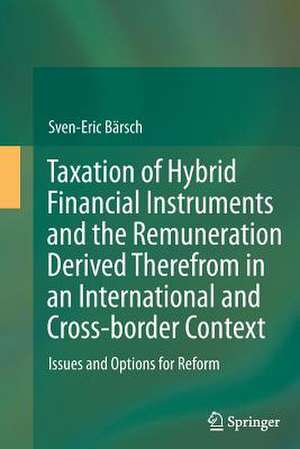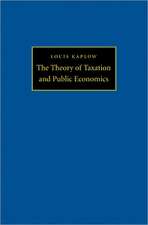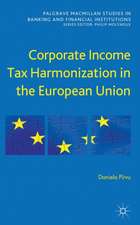Taxation of Hybrid Financial Instruments and the Remuneration Derived Therefrom in an International and Cross-border Context: Issues and Options for Reform
Autor Sven-Eric Bärschen Limba Engleză Paperback – 28 ian 2015
| Toate formatele și edițiile | Preț | Express |
|---|---|---|
| Paperback (1) | 950.03 lei 6-8 săpt. | |
| Springer Berlin, Heidelberg – 28 ian 2015 | 950.03 lei 6-8 săpt. | |
| Hardback (1) | 956.18 lei 6-8 săpt. | |
| Springer Berlin, Heidelberg – 12 dec 2012 | 956.18 lei 6-8 săpt. |
Preț: 950.03 lei
Preț vechi: 1158.57 lei
-18% Nou
Puncte Express: 1425
Preț estimativ în valută:
181.81€ • 197.42$ • 152.72£
181.81€ • 197.42$ • 152.72£
Carte tipărită la comandă
Livrare economică 23 aprilie-07 mai
Preluare comenzi: 021 569.72.76
Specificații
ISBN-13: 9783642432330
ISBN-10: 3642432336
Pagini: 412
Ilustrații: XXII, 390 p.
Dimensiuni: 155 x 235 x 22 mm
Greutate: 0.58 kg
Ediția:2012
Editura: Springer Berlin, Heidelberg
Colecția Springer
Locul publicării:Berlin, Heidelberg, Germany
ISBN-10: 3642432336
Pagini: 412
Ilustrații: XXII, 390 p.
Dimensiuni: 155 x 235 x 22 mm
Greutate: 0.58 kg
Ediția:2012
Editura: Springer Berlin, Heidelberg
Colecția Springer
Locul publicării:Berlin, Heidelberg, Germany
Public țintă
ResearchCuprins
Introduction.- Background of Financial Instruments.- Guidelines for Corporate Income Taxation of Hybrid Financial Instruments.- Tax Classifications and Treatments of Hybrid Financial Instruments and the Remuneration Derived Therefrom.- Classification Conflicts and Options for Reform.- Conclusions.
Textul de pe ultima copertă
Despite the enormous diversity and complexity of financial instruments, the current taxation of hybrid financial instruments and the remuneration derived therefrom are characterized by a neat division into dividend-generating equity and interest-generating debt as well as by a coexistence of source- and residence-based taxation. This book provides a comparative analysis of the classification of hybrid financial instruments in the national tax rules currently applied by Australia, Germany, Italy and the Netherlands as well as in the relevant tax treaties and EU Directives. Moreover, based on selected hybrid financial instruments, mismatches in these tax classifications, which lead to tax planning opportunities and risks and thus are in conflict with the single tax principle, are identified. To address these issues, the author provides reform options that are in line with the dichotomous debt-equity framework, as he/she suggests the coordination of either tax classifications or tax treatments
Caracteristici
Includes supplementary material: sn.pub/extras
Includes supplementary material: sn.pub/extras
Includes supplementary material: sn.pub/extras














